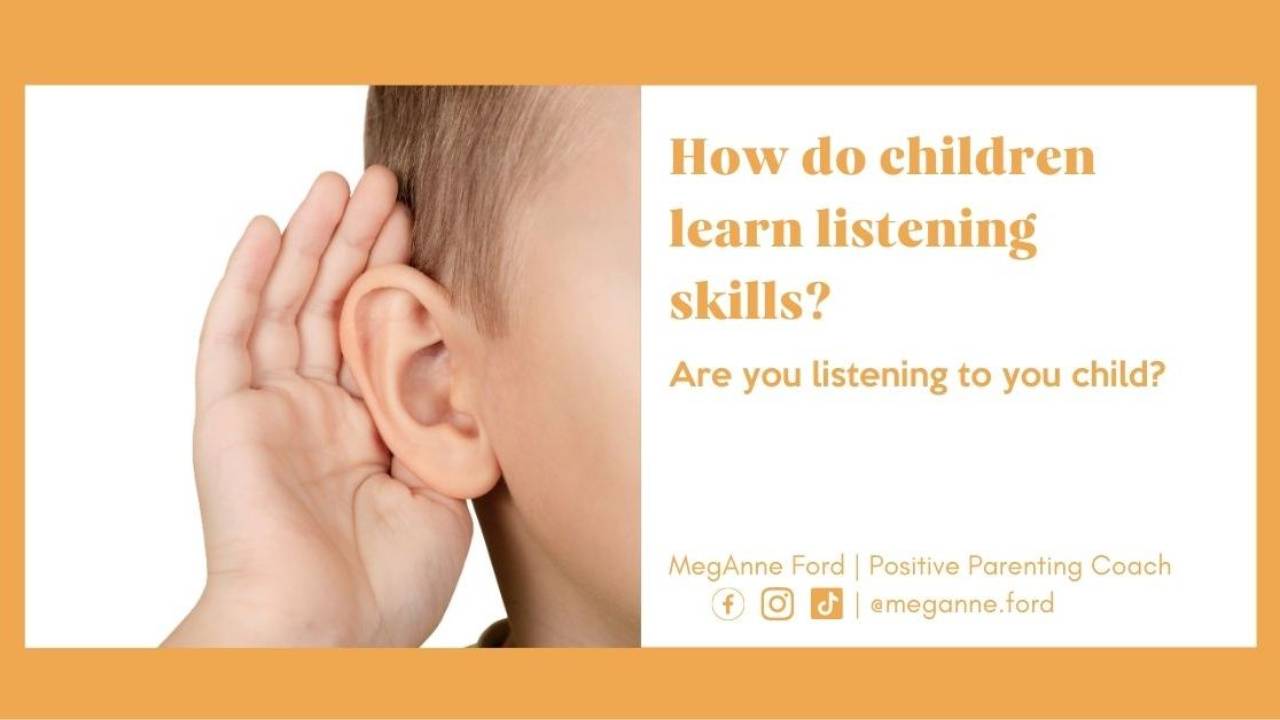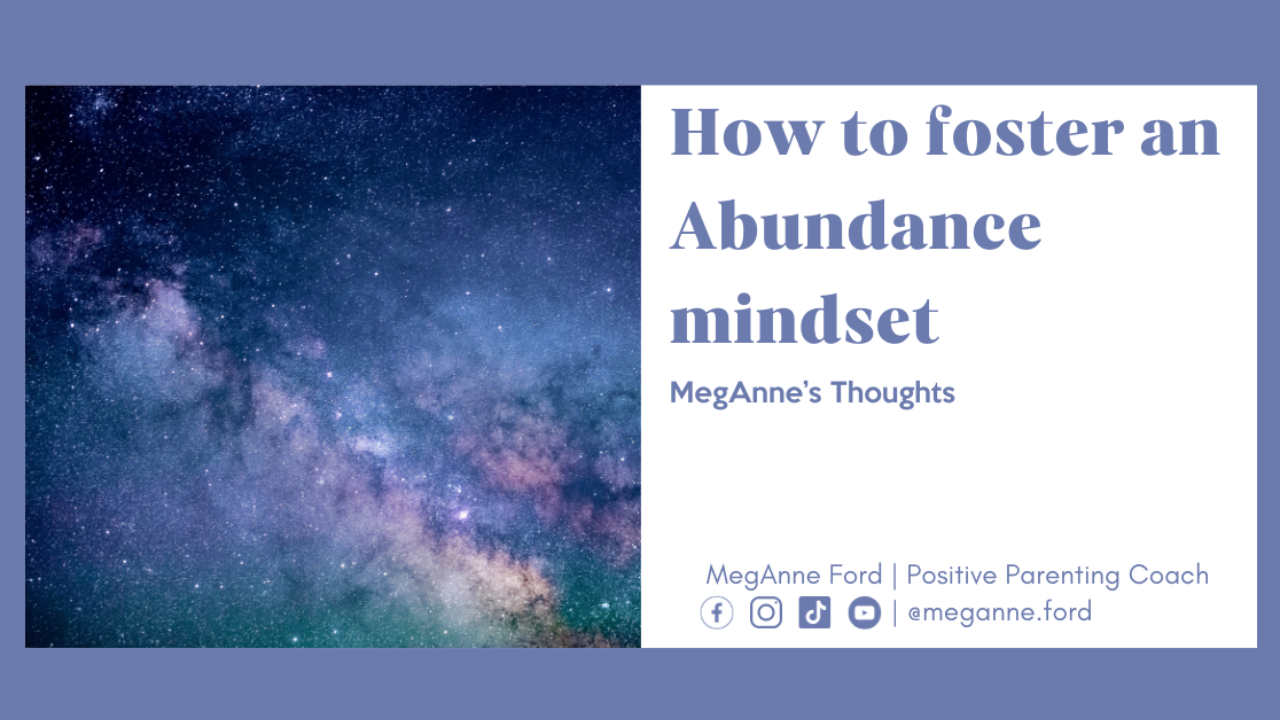
Why Mom Guilt, is Really Mom Shame.
Apr 10, 2024
Mom guilt and shame are ready to be dissected and reframed.
You might be familiar with the content that I produce, and this content is often seen as shaming parents for what they do. When I started to really dig into this work and kind of what elicits those feelings, I think it's natural to feel shame when we have been shamed and when we are encountering something that reflects back something that we feel shameful for.
Takeaways
- Embrace Vulnerability: Recognize that feeling shame when learning about positive parenting methods is natural, as it challenges existing behaviors and methods.
- Guilt as a Signal: Understand that guilt often indicates a violation of personal values, prompting reflection and repair, while shame is an unhelpful self-judgment that stuns and freezes us.
- Shifting Perspectives: Replace the binary view of "good" and "bad" parenting with a focus on growth, learning, and self-compassion, moving away from unrealistic societal ideals.
- Celebrate Efforts: Acknowledge that trying and asking for help demonstrate courage and commitment to bettering oneself and one's parenting, rather than viewing it as a sign of inadequacy.
This always comes out in comments on social media or comments to someone who's outside of the work, and what they say to me is they call me a mom shamer, or they say, you know, stop shaming moms, and they get kicked into a very strong defense.
I want you to know I get it. Learning positive parenting methods and becoming accountable for the ways that we show up in our relationships in the parent-child dynamic is a very vulnerable and sensitive topic.
It's natural that when faced with information that challenges some of your current behaviors or your current methods and strategies, it's natural to be like, "Oh, like, ah, that sucks," or this feeling of immense guilt and shame comes up.
I think the conversation I want to have is to pause there in that feeling of shame, of what is it that's really going on, and then how can we move past it?
Because what I normally see this play out is it's been met with defense.
Common things heard when speaking about parenting
"Well, we're doing the best that we can, right?"
We use that as an excuse. It's like, "Well, we're just doing the best we can." And I get it, and I am like, "Yeah, we are. So let's reflect back, say, 'Hey, are we in alignment with the impact that we're making?' Because if we're doing the best we can and this is the impact, then it's natural to say, 'Hey, let me get into spaces that allow me to elevate and learn more so that I can do better and then in turn have a different impact, a better return.'
"Well, they are kids. You don't get to tell other people how to raise their kids."
In those respects, I agree. I agree that my job, my role here, is not to tell people how to raise their kids, is not to tell people one way is better than the other, but again to reflect back, like, 'Hey, let's take accountability here in our intentions and our impacts and really lean into becoming aware that our impacts and our intentions might be misaligned.'
"There's no perfect parent."
I agree. I agree with you that there is no such thing as a perfect parent. I even think saying there's no perfect parent is still in some way valuing perfection as the gold standard, and I'm here to say no, positive parenting is not synonymous with perfect parenting. Positive parenting is actually about focusing on the process, getting into those uncomfortable spaces, getting into those spaces to become self-reflective so that we can start to honor our own practice, our own process, and value our own efforts.
"There's no manual"
I agree. I agree there's no manual. However, there is a lot of great information and great support on how to meet children in developmental appropriate spaces, on how to create and set effective and healthy and not harmful boundaries, how to use natural consequences to help support children in stressful moments rather than add more stress in those stressful moments. So, though there is no parenting manual per se, there are a lot of great resources now, especially now in times of Google, in times of a lot of access on demand, to help create and empower you to form your own manual.
"Well, every child is different. You don't know what's right for mine, and what works for yours won't work for mine."
I agree. Every child is different. However, we also all typically respond to stress responses very similarly. Whenever we are inside of a threat, there are some pretty predictable outcomes to that. So, though every child will be triggered into one of those responses differently, it's a common human space to be triggered into that threat when we are experiencing threat, and my goal, my role here, is to help create a space where your child does not see you as the threat, that your child feels safe with you as their caregiver, which means creating that relationship with your child, co-creating that relationship with them, so that we can start to see where are our efforts, again, misaligned, so that we can get back into alignment.
"I'm trying, and that's all that matters."
I agree. I agree with you that trying is a huge part. It takes so much courage, effort, and vulnerability to step into spaces, to ask questions, to make mistakes, and to work towards improving yourself. I just empower you, and I encourage you not to find comfort in the phrase 'I'm trying.' And what I mean by that is when parents come to me and say, 'Well, I'm trying to stop yelling,' I see it. I invite them to say, 'You know, who is that protecting? Is it protecting you or is it protecting your child? Because your child is still experiencing the yelling.' So, though I encourage you and applaud you and want you to get into spaces that allow you to try, to take action, to make mistakes, to get up, to self-reflect and start that process again, I want you to release that you have to prove something, that you have to prove like, 'I'm trying to do it,' and then put pressure on yourself to keep doing something that maybe you don't have that knowledge, skill set, support, access to.
I hope this is all tracking because I think that this conversation is a big one, and I know that parenting is a very charged space in general. And I just think that, especially as a parenting coach, it can come with a lot of false beliefs of what my perspective is or what my role in this conversation is, and I know that those feelings of shame, I mean, they are sharp, and they are heavy, and they are painful. Let's bring light to the dark areas, saying that it's safe to feel uncomfortable, it's safe to feel those big emotions, and really start to reinterpret what those big charged emotions mean.
Three beliefs holding you in mom guilt
Asking for help means that you're inadequate, that we maybe think like, "Oh, you don't know."
I want you to know that that's false. I actually think that asking for help means that you are amazing, that you are courageous, that you are stepping into spaces to better yourself and better your children, and that's incredibly brave.
That other parents, quote-unquote, just know what to do.
Like we see it on social media, and we see them portraying and projecting out this ideal of perfection, and so we just think like, "Oh well, they just know what to do," and I want you to know that if they know, it's because they've been taught, either through their own parents modeling these skills for them or they have taken action to attain that knowledge and education themselves. No one is just born knowing how to set boundaries because that's something that is learned, like no one is just born leaning into natural consequences because it's actually going counter to our instincts, and our instincts are to protect and survive.
So positive parenting is really about getting into a space that invites us to regulate ourselves, to get out of those instinctual survival skills, and get into a more thriving space that creates a sense of safety.
Bad parents work with parenting coaches.
I do not believe in bad parents. It's a controversial take. I say good parents yell, because I know there is no such thing as a bad parent. I truly don't believe it, and I empower and encourage you to get out of this good-bad binary as well.
Three Assumptions that I make to break you free of mom guilt
You are a good parent.
I believe that all parents are good parents because I believe all people are good people.
You are currently trying.
I never assume that you're not trying. I think you're always trying. I think parents are some of the most dedicated and amazing people there are because they are taking care and fostering and cultivating the next generation. I know that that comes with an immense amount of pressure and effort, so I know you are trying. I'm never questioning that at all.
You love your child.
That is never anything that I ever question when working with clients, and when we're again going into this topic even more, it reminded me of a quote from Brené Brown in her book.
"I also learned that when you hold someone accountable for hurtful behavior and they feel shame, that's not the same thing as shaming someone. I am responsible for holding you accountable in a respectful and productive way. I am not responsible for your emotional reaction to that accountability." - Brene Brown Atlas of the Heart










